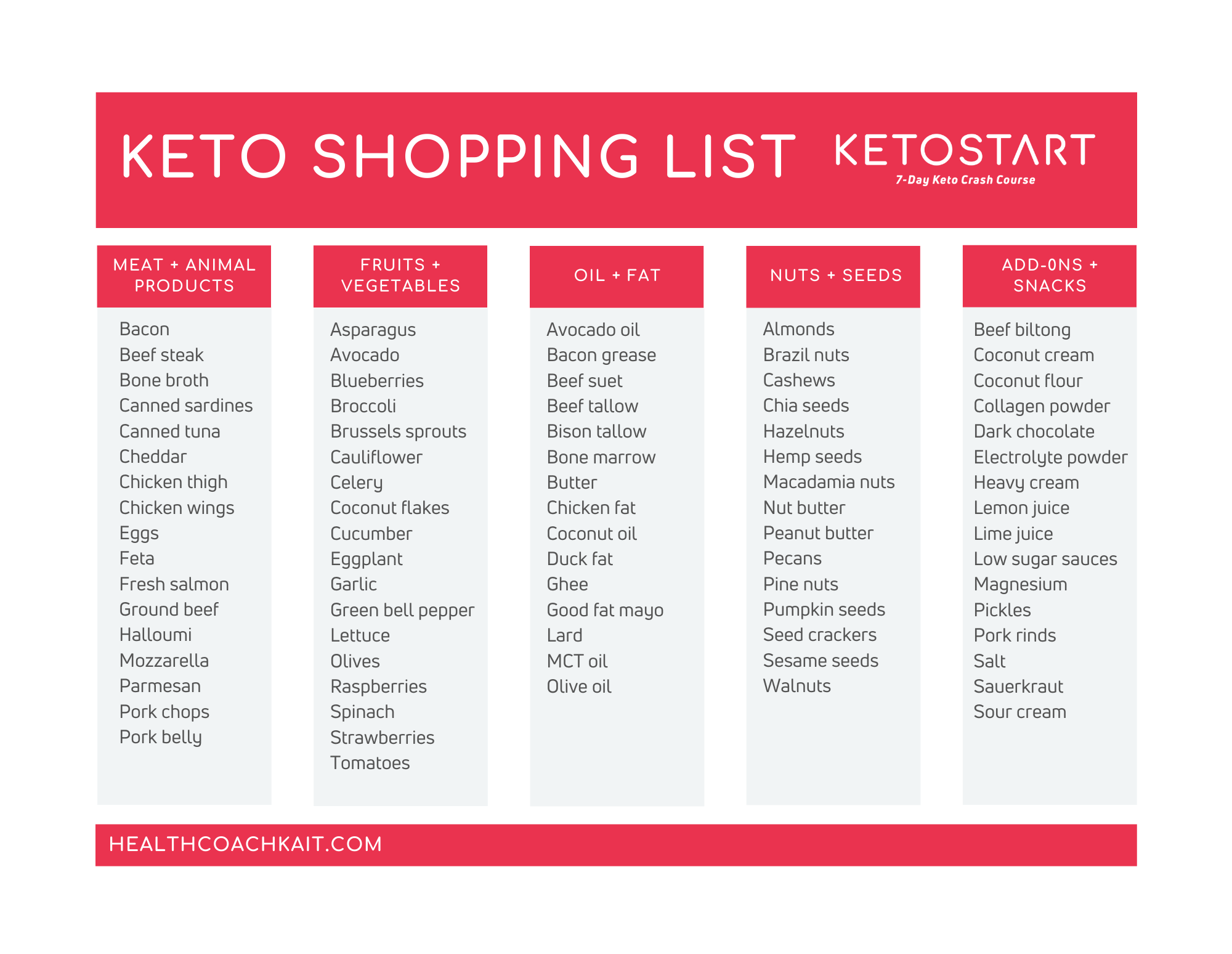Keto Shopping List
Keto Shopping List
What foods can you eat on a keto diet? Limiting carbohydrates might seem restrictive at first, but the list of foods you can eat on a keto diet is actually quite extensive!
Following a keto diet has been proven to have numerous benefits such as:
fat loss
increased energy
improved brain function and memory
decreased inflammation
disease prevention
improved insulin sensitivity and blood sugar regulation
On a keto diet, you want to keep your total carbohydrate consumption less than 50g. This is the point at which most people will be in ketosis (burning fat for energy).
Foods you want to eat on a keto diet include:
healthy fats and oils
quality meat and animal products
low starch vegetables
low sugar fruit
nuts and seeds
Here are some of the foods you can include in your diet to keep you under 50g of total carbs…
Oil and Fat
Meat and Animal Products
bacon grease
beef suet
bison tallow
bone marrow
butter
chicken fat
coconut oil
lard
olive oil
bacon
beef steak
cheddar
chicken thigh
chicken wings
eggs
feta
fresh salmon
ground beef
halloumi
mozzarella
parmesan
pork chops
pork belly
Nuts and Seeds
almonds
brazil nuts
cashews
chia seeds
hazelnuts
hemp seeds
macadamia nuts
nut butter
peanut butter
pecans
pine nuts
pumpkin seeds
seed crackers
sesame seeds
walnuts
Fruits and Vegetables
asparagus
avocado
blueberries
broccoli
brussels sprouts
cauliflower
celery
coconut flakes
cucumber
eggplant
garlic
green bell pepper
lettuce
olives
raspberries
spinach
strawberries
tomatoes
Add-Ons and Snacks
beef biltong
coconut cream
coconut flour
dark chocolate
heavy cream
lemon juice
lime juice
magnesium
pickles
salt
sauerkraut
sour cream
It may seem overwhelming at first, but I promise you it is easy once you wrap your head around it. Once you have experienced the benefits of a ketogenic diet, you will not want to go back to being a sugar burner!
To see more of my recommended keto products, click here.
ARE YOU INTERESTED IN TRYING THE KETO DIET BUT NOT SURE WHERE TO START?
This website is for general informational purposes only. It must never be considered a substitute for advice provided by a doctor or other qualified healthcare professional. Always seek the advice of your physician or other qualified healthcare professional with questions you may have regarding your medical condition.


